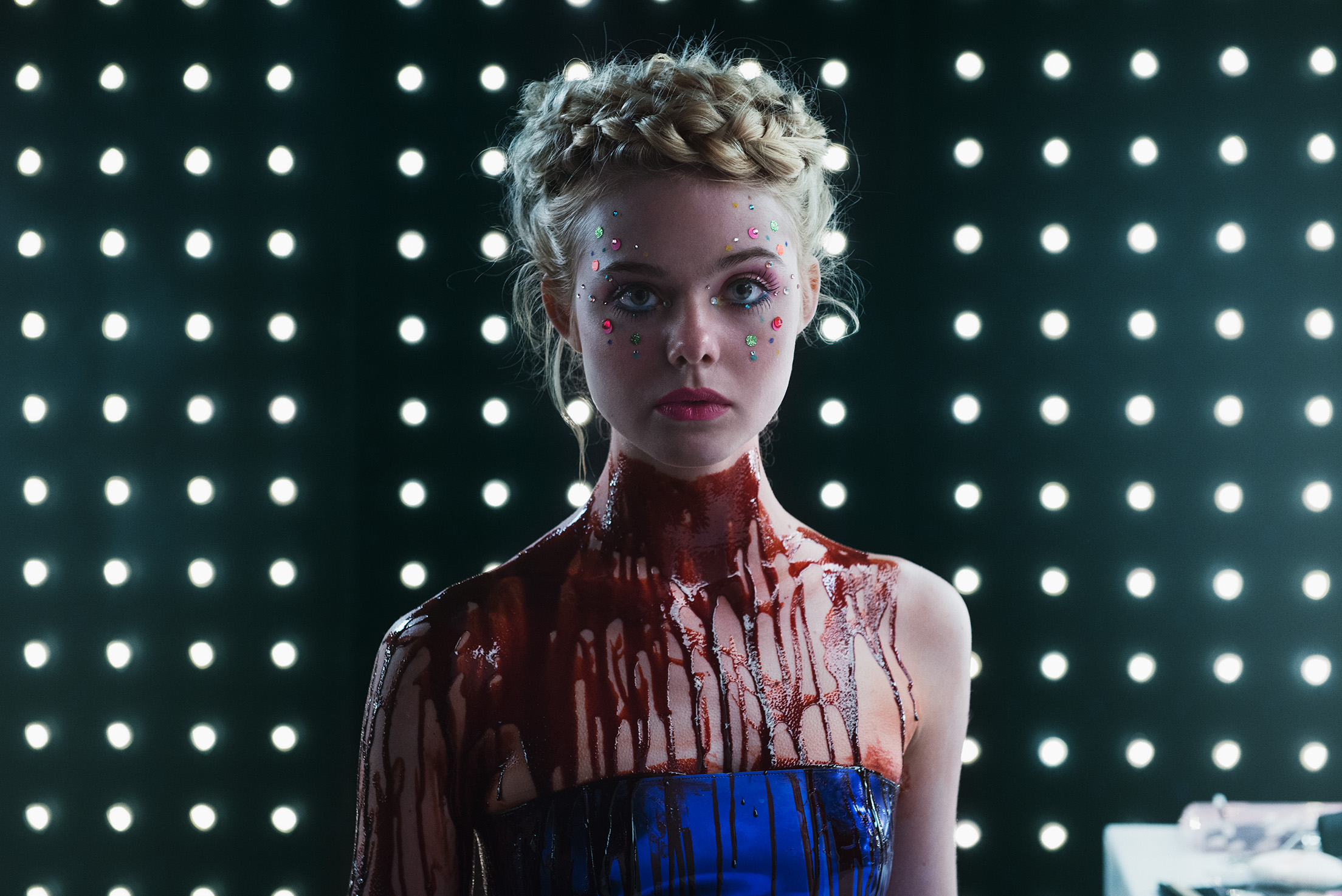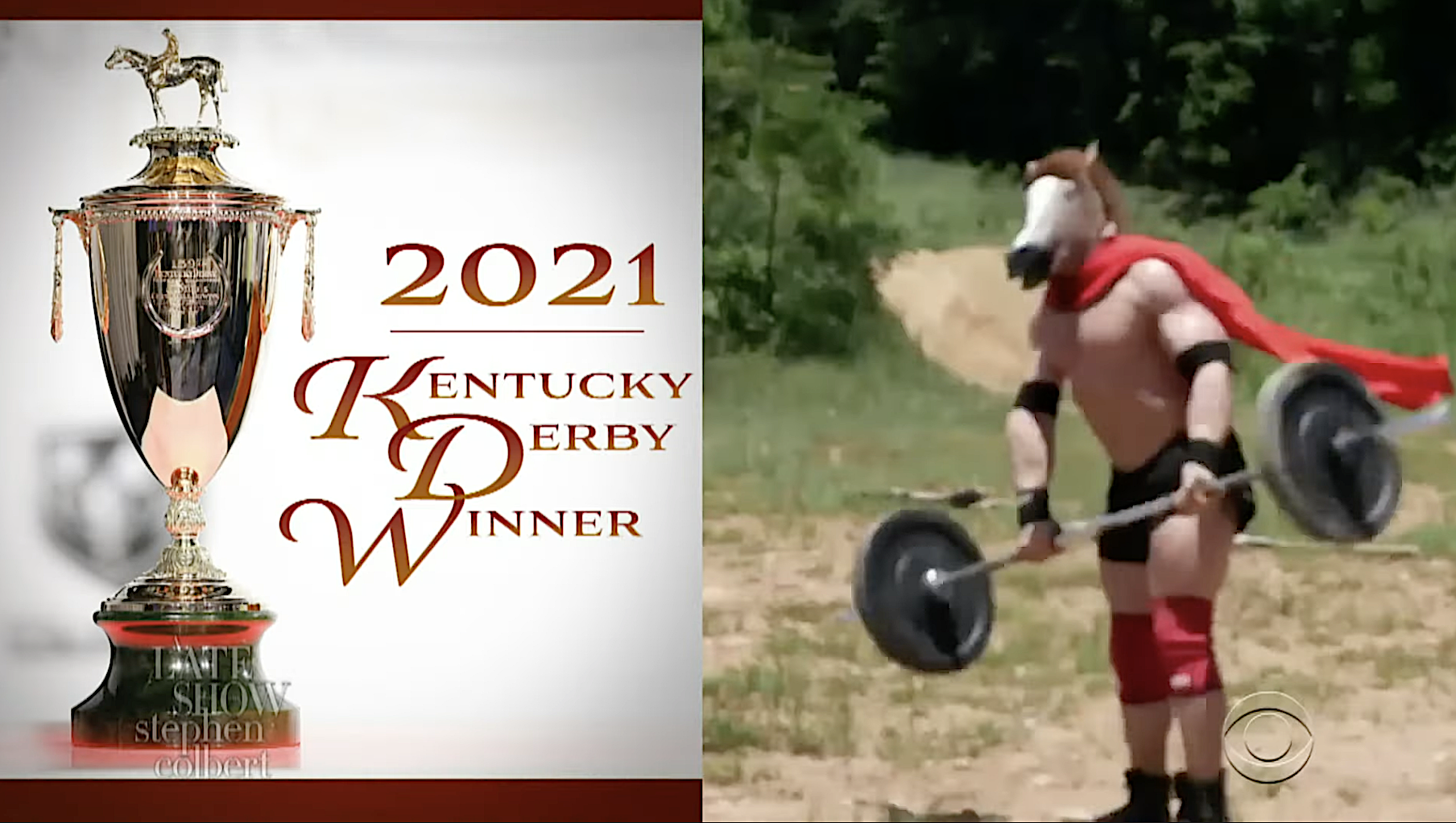The Neon Demon is the salacious antidote to our summer blockbuster disease
This is gaudy, grotesque fun


A free daily email with the biggest news stories of the day – and the best features from TheWeek.com
You are now subscribed
Your newsletter sign-up was successful
After the slick-as-chrome Drive (2011), a neo-noir thriller about small-time criminals, director Nicolas Winding Refn was supposed to be The Next Big Thing.
The Danish auteur had been crafting lugubrious arthouse thrillers about drug peddlers and Kenneth Anger-inspired norse warriors for 15 years, but didn't have an American hit until Drive, which made more than $70 million on a budget of $14 million and won Best Director honors at Cannes. Drive starred pretty boy Notebook heartthrob (and Oscar nominee) Ryan Gosling, who asked Refn to direct the film. Communicating in clipped, terse intonations and slight facial tics, Gosling transmogrified into a stoic, face-stomping (but still very pretty) cipher with wonderful sartorial taste. GQ fell in love with Gosling's denim-on-denim style and music fans fell in love with the dream-pop soundtrack. Movie writers hypothesized that Refn, with his penchant for high-contrast, deeply saturated colors (he's colorblind), synth-laden scores, and gloriously gaudy violence, would become Hollywood's most sought-after director. They were wrong.
Refn's follow-up, Only God Forgives (2013), premiered at Cannes, just like Drive did. But unlike Drive, pretty much everyone hated it. Only God Forgives is pure provocation, nihilistic and solipsistic. Critics ravaged it, greeting it with the same kind of hostile bludgeoning that Refn inflicts upon his characters. As a brutal fighter whose pedophile/rapist brother is slain by a sword-wielding, karaoke-singing police officer-cum-Angel of Death, Gosling is even more emotionally vacuous here than he was in Drive; there, he at least kissed his love interest tenderly before splattering a man's face with his boot heel. Only God Forgives plays like a deliberate attempt by Refn to ostracize the mainstream audience that had finally found him.
The Week
Escape your echo chamber. Get the facts behind the news, plus analysis from multiple perspectives.

Sign up for The Week's Free Newsletters
From our morning news briefing to a weekly Good News Newsletter, get the best of The Week delivered directly to your inbox.
From our morning news briefing to a weekly Good News Newsletter, get the best of The Week delivered directly to your inbox.
Which brings us to Refn's latest:The Neon Demon, the first film Refn has produced himself since his 1996 Bleeder. The Neon Demon is another unapologetic descent into esoterica, but this time Refn perforates the 117-minute movie with campy humor and Keanu Reeves. The jokes probably won't help it find a huge audience — there are no superheroes and no promises of a franchise — but it's his most purely fun film since, well, maybe ever.
Less oppressive than Only God Forgives but just as aesthetically lascivious, Neon Demon is the Codeine-steeped antidote to summer's big, bloated blockbuster affliction. Elle Fanning plays Jesse, an aspiring model/actress who ventures to Los Angeles to pursue her dreams of beauty and fame. There, she meets a coterie of beauty queens who eat people and copulate with corpses. You know, typical L.A. stuff.
Refn's Los Angeles is a low-calorie city of neon lights, high cheekbones, sordid motels with water beds, and photographers so creepy they make Terry Richardson look like Mr. Rogers. It's rife with people staring off vacantly, glaring into their own reflections as the camera zooms slowly, so slowly — you know, typical ennui stuff. As Keanu Reeves' squalid motel manager says, "Real Lolita shit."
The characters are fleshy husks. They're vain and virulent, talking about sex and fruit and sex and makeup, saying things like, "Who wants sour milk when you can get fresh meat?" This is not how people speak, but Refn isn't concerned with people. He's concerned with beauty. While it doesn't always work — a scene of a mountain lion doing... something, for some reason, maybe it's a metaphor, detracts from the hypnotic atmosphere, and the movie could use more creepy Keanu — The Neon Demon offers the kind of fun major American studios jettisoned a long time ago. And national treasure Jena Malone, wasted in Batman v Superman: Dawn of Franchise, relishes every line, every lingering glance as Jesse's friend, someone not quite gangly and grotesque enough to be a model herself.
A free daily email with the biggest news stories of the day – and the best features from TheWeek.com
The digital phantasmagoria of beauty and stupidity Refn conjures up has shades of Suspiria — or shades of deep red, really. With a slender budget of $7 million, most of which must have gone to makeup and red light bulbs, Neon Demon is efficiently indulgent, favoring visual metaphors and absurd moments of nonsensical sensuality, all vapid and silly but somehow enthralling. Stroboscopic images reflect aroused bodies growing heavier, hotter, burning in monochrome against tarpit-black backgrounds. The pairing of sound and vision is less a marriage than a lustful tryst. Composer Cliff Martinez imbues the camp-trash narrative with his own spin on Italo disco. It's Martinez's best film work yet, and his most pervasive; pulsating synths and shimmering washes of minor chord arpeggios spill into every scene. Martinez seems to tap into Refn's weird sense of humor, filling the film with music that's just as apt for dancing as it is murder.
The main criticism heaved against Refn is that his style of surreal pop-horror is all surface-level — David Lynch without the profundity. This isn't entirely unfair. The main pleasure of his films is how they look, how they sound. He's the cinematic equivalent to a lap dance, teasing with voluptuous desires but never really bringing you all the way anywhere. In lieu of characters, he often serves up depraved non-people and has them beat each other senseless. With The Neon Demon, he vivisects the idea of surface-level pleasure by creating a frightening world of surfaces gleaming with pleasure. He takes a scalpel to beauty standards, peels back the flesh, and reveals the nasty bits below. These are monsters wearing the faces of people like masks. They live deliciously, they die deliciously.
Greg Cwik is a writer and editor. His work appears at Vulture, Playboy, Entertainment Weekly, The Believer, The AV Club, and other good places.
-
 The environmental cost of GLP-1s
The environmental cost of GLP-1sThe explainer Producing the drugs is a dirty process
-
 Greenland’s capital becomes ground zero for the country’s diplomatic straits
Greenland’s capital becomes ground zero for the country’s diplomatic straitsIN THE SPOTLIGHT A flurry of new consular activity in Nuuk shows how important Greenland has become to Europeans’ anxiety about American imperialism
-
 ‘This is something that happens all too often’
‘This is something that happens all too often’Instant Opinion Opinion, comment and editorials of the day
-
 A peek inside Europe’s luxury new sleeper bus
A peek inside Europe’s luxury new sleeper busThe Week Recommends Overnight service with stops across Switzerland and the Netherlands promises a comfortable no-fly adventure
-
 A long weekend in Zürich
A long weekend in ZürichThe Week Recommends The vibrant Swiss city is far more than just a banking hub
-
 Late night hosts lightly try to square the GOP's Liz Cheney purge with its avowed hatred of 'cancel culture'
Late night hosts lightly try to square the GOP's Liz Cheney purge with its avowed hatred of 'cancel culture'Speed Read
-
 Late night hosts survey the creative ways America is encouraging COVID-19 vaccinations, cure 'Foxitis'
Late night hosts survey the creative ways America is encouraging COVID-19 vaccinations, cure 'Foxitis'Speed Read
-
 The Daily Show's Trevor Noah carefully steps through the Israel-Palestine minefield to an 'honest question'
The Daily Show's Trevor Noah carefully steps through the Israel-Palestine minefield to an 'honest question'Speed Read
-
 Late night hosts roast Medina Spirit's juicing scandal, 'cancel culture,' and Trump calling a horse a 'junky'
Late night hosts roast Medina Spirit's juicing scandal, 'cancel culture,' and Trump calling a horse a 'junky'Speed Read
-
 John Oliver tries to explain Black hair to fellow white people
John Oliver tries to explain Black hair to fellow white peopleSpeed Read
-
 Late night hosts explain the Trump GOP's Liz Cheney purge, mock Caitlyn Jenner's hangar pains
Late night hosts explain the Trump GOP's Liz Cheney purge, mock Caitlyn Jenner's hangar painsSpeed Read
